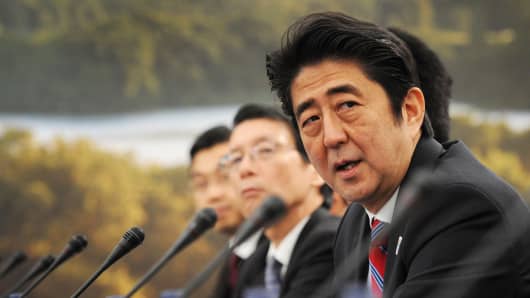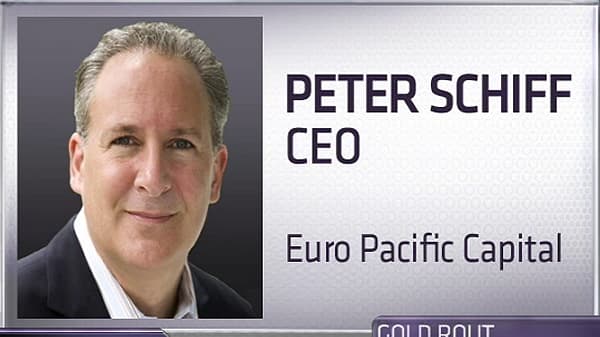The incredible rise of Japanese stocks, and the gut-wrenching correction that recently ensued, have only one parallel for Peter Schiff: The dot-com bubble of the late 1990s and 2000.
In both rallies, investors shifted away from accepted means of valuation, and were instead "deluded by fairy tales," Schiff said. As tech stocks skyrocketed, "We were told that valuations, revenue and profits no longer mattered."
And as Japan embarked upon a policy of massive quantitative easing, "monetary policy was seen as a substitute for an actual economy."
(Read More: PM Abe Says G-8 Welcomed Japan's Economic Policies)
Now the Japanese Nikkei index sits nearly 20 percentage points below its late-May peak. But Peter Schiff, the CEO of Euro Pacific Capital, said it could get much worse.
"The Japanese government could quickly become insolvent," Schiff said. This would happen if Japanese bond yields continued to rise, for "if rates on the 10-year debt were to ever match the 2 percent of their inflation target, more than half of total tax revenue would be needed to service debt payments."
But Miller Tabak's chief economic strategist, Andrew Wilkinson, does not believe that Schiff's concern is a serious one. "My opinion is that it probably won't happen," Wilkinson said regarding Schiff's nightmare scenario.
"The nature of the Japanese bond market is that the majority of investors are domestic. So I don't see foreign investors throwing in the towel as being a big-picture driver here."
Beyond the intricacies of the Japanese bond market, Schiff and Wilkinson have a fundamental disagreement about economic policy.















